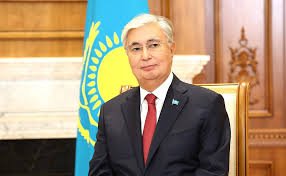Kazakh Flour Reaches U.S. Shelves: A Historic Step Toward a Global Brand

Kazakhstan has reached a historic milestone in international trade. For the first time, Kazakhstani flour has entered the United States market and has already found a place on the shelves of major supermarkets in New York and Chicago. According to Kazinform, citing the press service of the Ministry of Foreign Affairs of Kazakhstan, this strategic breakthrough was made possible through cooperation between the Global New York Chamber of Commerce, Kostanay-based company Salamat LLP, and the Consulate General of Kazakhstan in New York.
This step is viewed not merely as a trade success but as evidence that Kazakhstan is becoming a new rising power in the sphere of global food security.
“Product of Kazakhstan”: The Birth of a Global Brand
Samat Umirzakov, President of the Global New York Chamber of Commerce, stated:
“The entry of Kazakhstani products into the U.S. market is not simply an export initiative; it is the beginning of Kazakhstan’s journey as a global brand. We are confident that the label ‘Product of Kazakhstan’ will become the choice of American consumers who value quality and sustainability.”
Kazakhstani organic products are now represented not only in regional markets but also in the most competitive global marketplace. Major retailers such as Walmart, Whole Foods, and Amazon Prime have already begun distributing Kazakhstani goods, symbolizing a triumph of Astana’s trade diplomacy.
From the Heart of Eurasia to the World
Located at the very heart of Eurasia, Kazakhstan is a strategic hub of the New Silk Road between China and Europe. The country now demonstrates that it is not only a leader in energy and logistics but also in agriculture and the food sector.
Entry into the U.S. market is described as the “opening of Eurasia’s gates” to the global economy. Experts emphasize that this achievement creates opportunities for promoting the entire region’s products under Kazakhstan’s leadership.
Future Perspective: 2030 and Beyond
This development is not merely a success of today but reflects Kazakhstan’s ambitious long-term strategy:
• Digitalization of agriculture: introduction of “smart farming” technologies to enhance yields and establish leadership in organic production,
• Green energy and sustainability: transition to “carbon-free production” in the agrarian sector,
• Global logistics hubs: following the U.S., plans to establish distribution centers for Kazakhstani goods in Europe and the Middle East,
• Expansion of the “Product of Kazakhstan” brand: within the next decade, the product line will extend beyond flour to include meat, dairy products, grains, beverages, and processed foods,
• Eurasian leadership: use of “food diplomacy” as an instrument of both economic and political influence.
Conclusion: Kazakhstan as a Future Global Power
Kazakhstan’s entry into the U.S. market is far more than an export transaction. It marks the beginning of path for a country that, from the heart of Eurasia, is transforming into one of the key actors of the global economy.
From Astana to Washington, the new message is clear:
“Kazakhstan is not merely a producer; it is the reliable supplier of the future, a global brand of Eurasia.”


